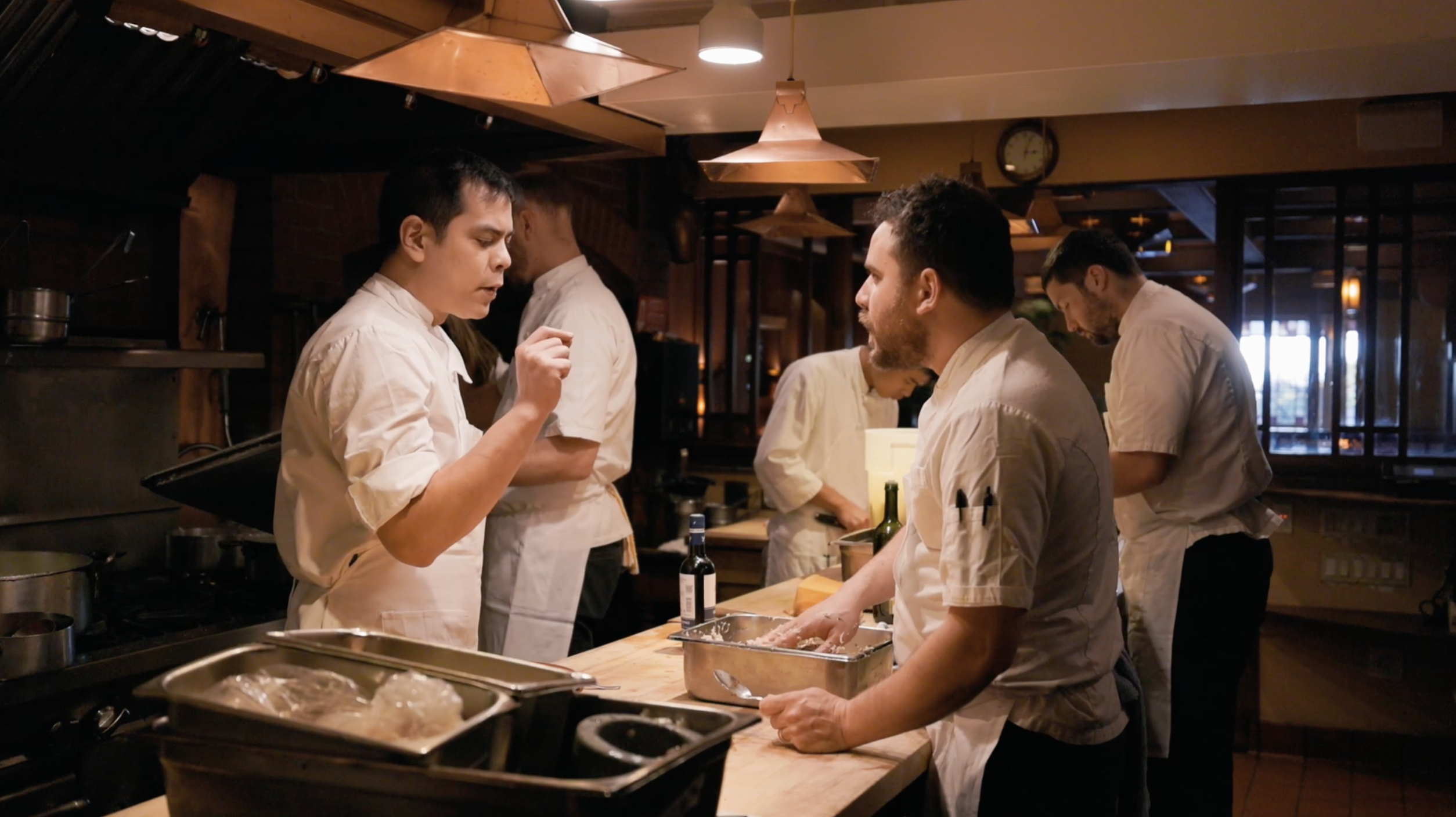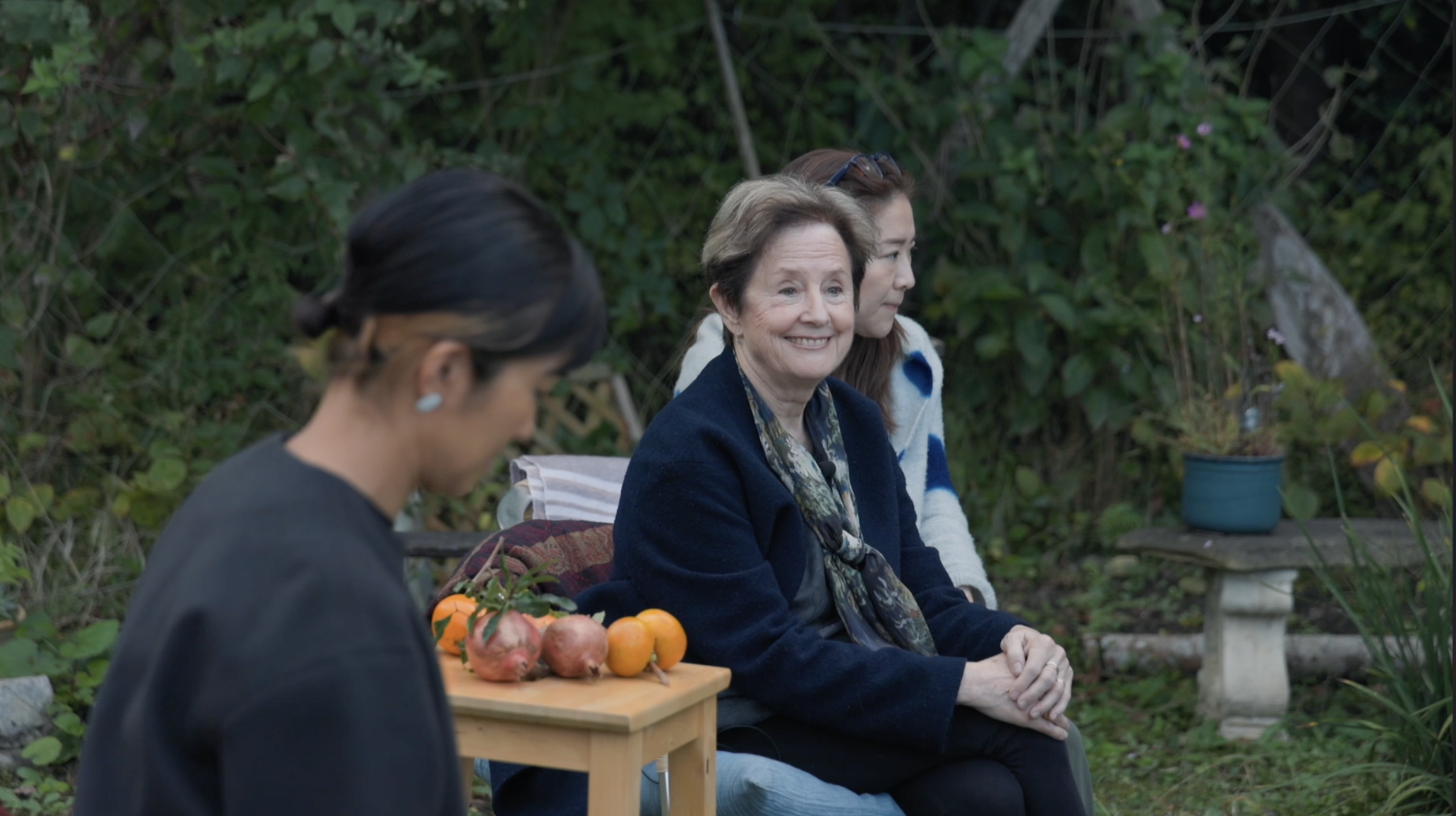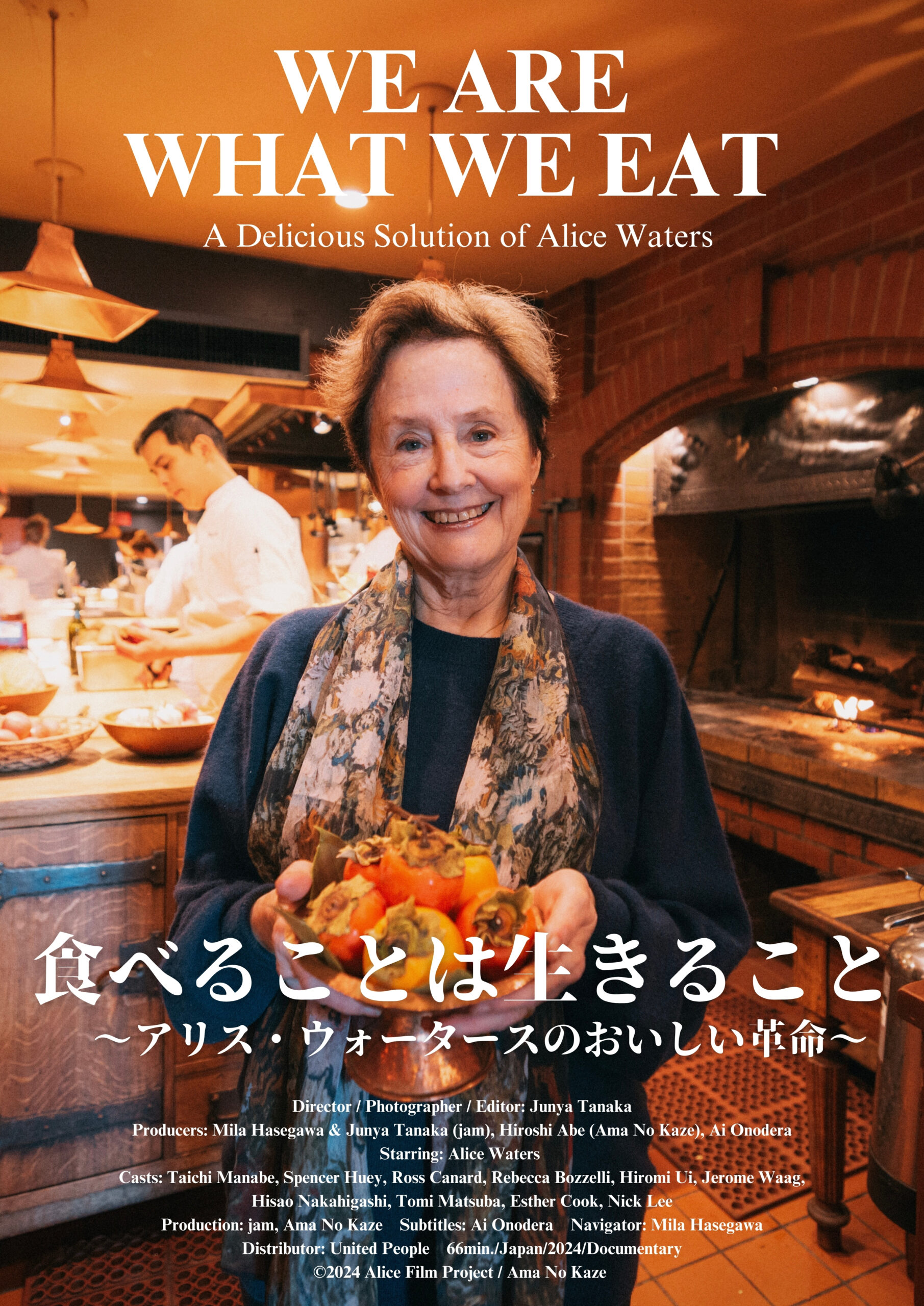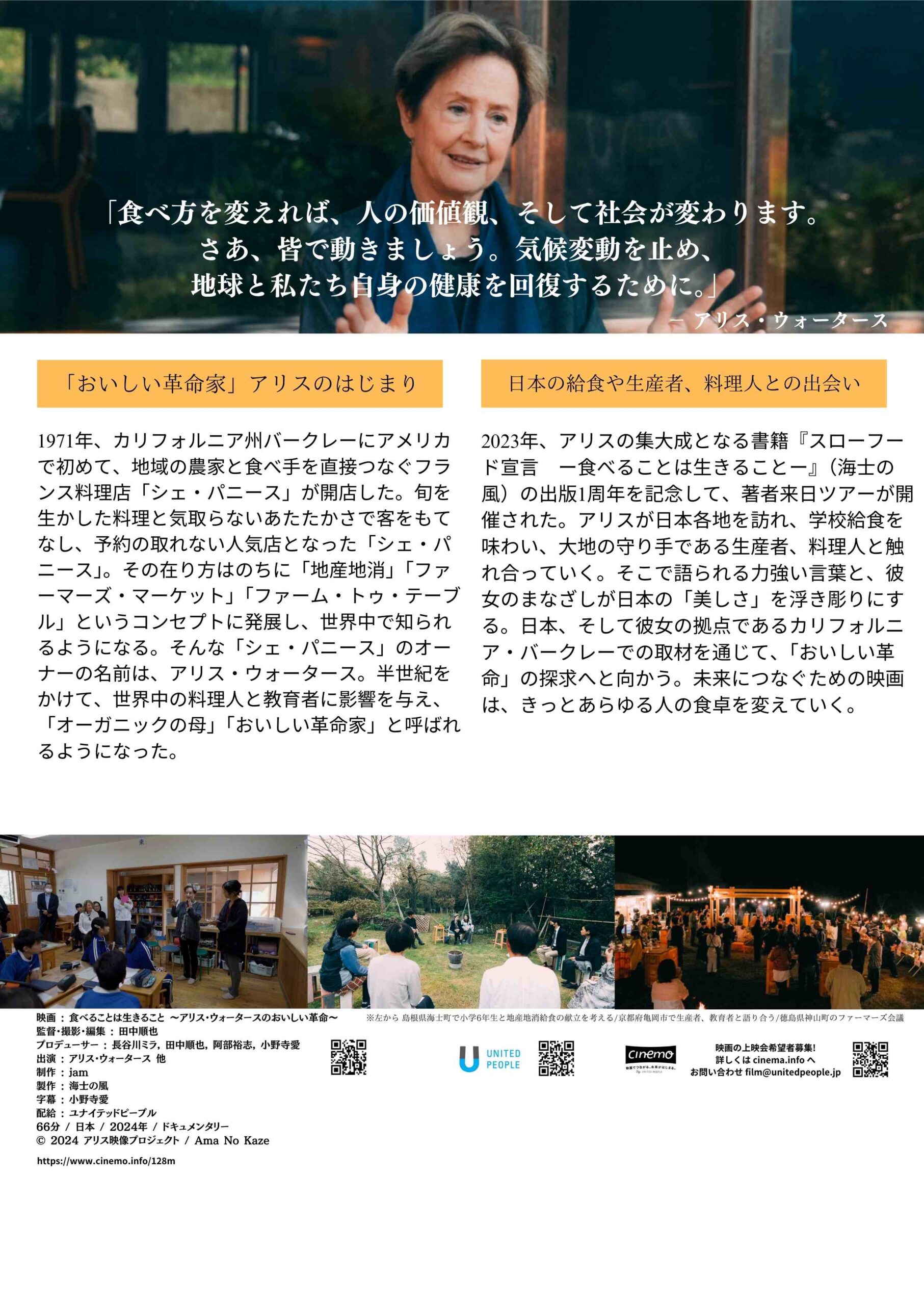Director/Photography/Editing: Junya Tanaka
Producer: Mila Hasegawa, Junya Tanaka, Hiroshi Abe, Ai Onodera
Starring: Alice Waters and others
Production: jam, Ama no Kaze
Subtitles: Aika Watanabe, Ai Onodera
Distribution: United People
66min./Japan/2024/Documentary
©2024 Alice Film Project / Ama No Kaze

We are what we eat. We can stop climate crisis and heal the health of our planet and ourselves, simply by shifting the way we eat. It only takes a taste.
―― Alice Waters

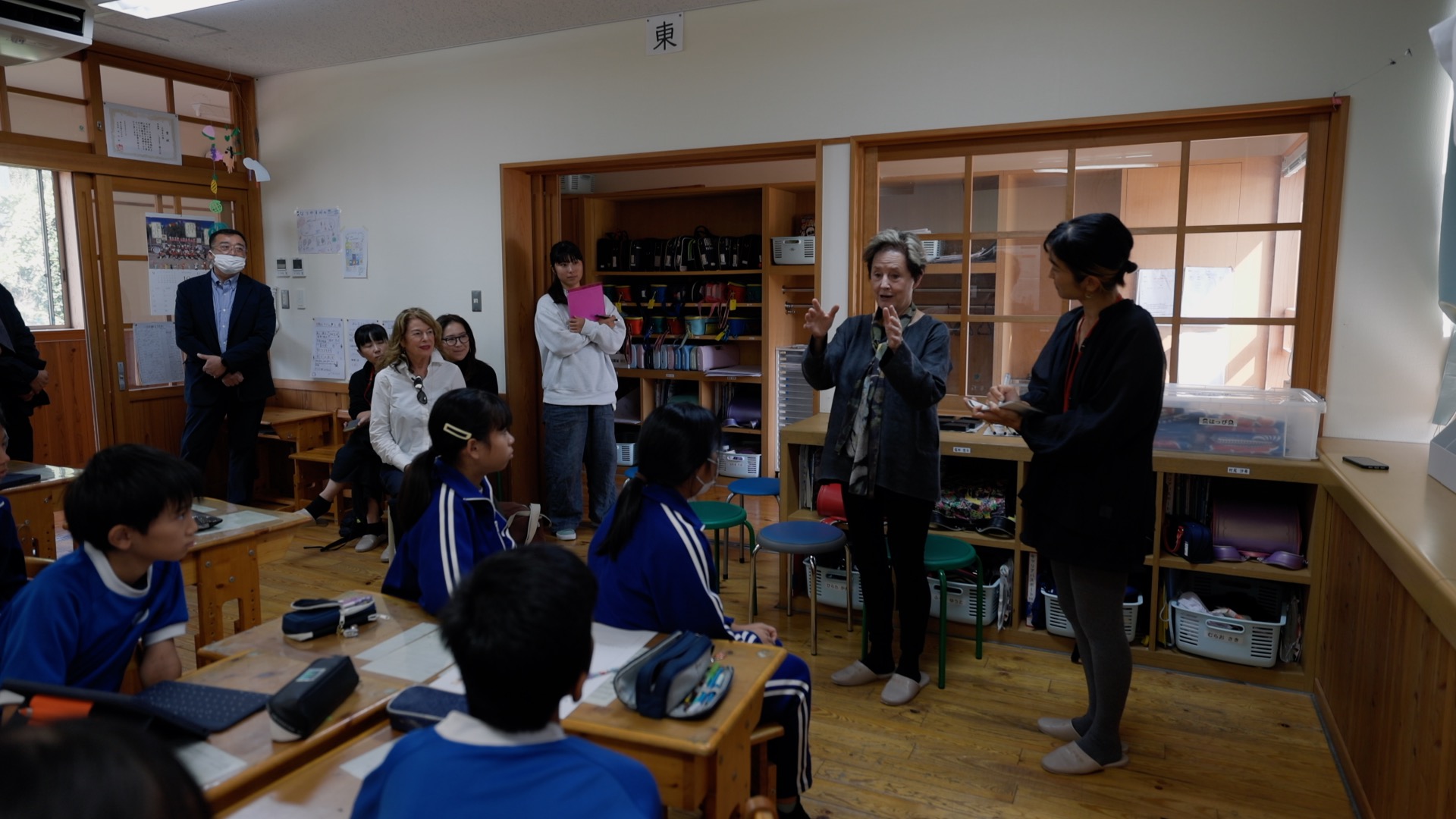
Alice Waters and her Delicious Revolution
In 1971, Alice Waters opened the US’ first farm-to-table restaurant, Chez Panisse, in Berkeley, California. The restaurant welcomed people with dishes based on local, seasonal, and sustainable ingredients. The customers discover that how you eat can change the world. It became a legend of American food culture and molded California’s modern culinary sense of self.
Alice cares deeply about how we grow food, what our children eat at school and, most importantly, teaching them how food is made. In 1995, she founded the Edible Schoolyard Project at a public middle school in Berkeley, which has students growing fresh produce at school as part of the curriculum. For over half a century, Alice has continued to inspire chefs and educators around the world, and is referred to as the “mother of organic” or “the delicious revolutionary”.
An encounter with Japanese schools, producers and chefs
In 2023, Alice visited Japan to commemorate the first anniversary of her book “We Are What We Eat – A Slow Food Manifesto”, published by Ama no Kaze. The journey took her across various regions of Japan, where she had school lunches and interacted with local producers and chefs dedicated to regenerating the local biodiversity through protecting their land. Through Alice’s passionate words and intent gaze, the audience will witness beautiful Slow Food initiatives in Japan.
The purpose of the journey is to encounter “Delicious Solutions” in Japan.
Do we have the power to choose what we eat, and what is the potential for individual and global transformation̶ simply by shifting our relationship to food?
